[ad_1]
Apparently, traditionally there by no means was such a factor as a “Ius Primae Noctis” – one delusion concerning the Center Ages that may be safely discarded, although different disagreeable features of that interval such because the very low degree of dental hygiene and the occasional peer stress to take part in a campaign are nonetheless legitimate. The closest the poor author of a weblog has to a “Ius Primae Noctis” is the suitable to debate issues which might be completely irrelevant to the supposed subject of the weblog. Like for me, to speak concerning the track “Kiss your lips” by Allo Darlin’, and to cite a few of the lyrics, similar to
“In a fairground in the midst of Paris
You tried to show to me your manliness
By successful me a teddy bear”
or
“All the gorgeous people who we meet
Eat natural and purchase inexperienced electrical energy
All the gorgeous people who we meet
Are a lot extra profitable of their careers than me”
After all, you may simply skip this a part of the weblog and transfer to the half on Nabang birds. Nabang is a city in Yingjiang county, Yunnan province, China – it’s proper on the border with Myanmar (there really is a border crossing roughly proper inside Nabang).
Let me begin by saying that I’m very glad that there have been no Japanese at Nabang. So for as soon as, I do not need to provide you with any semi-funny, pseudo-pornographic jokes.
As a substitute, I can simply current one other fowl, the Larger Coucal.
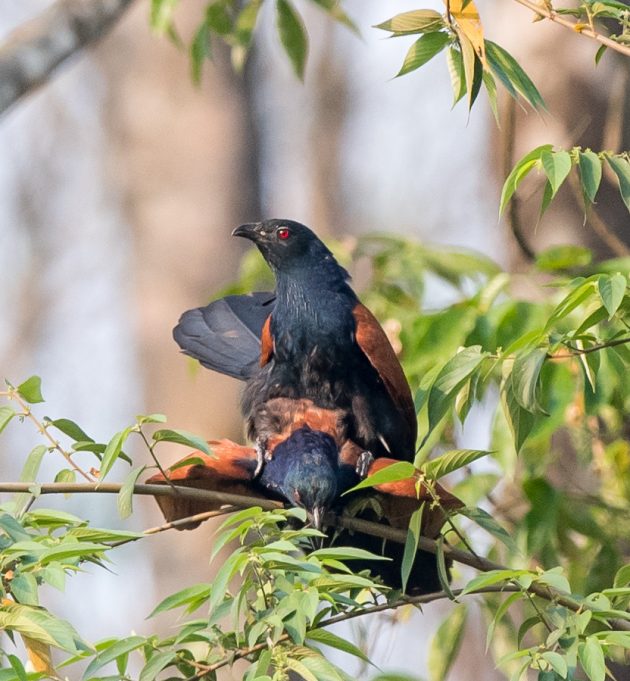
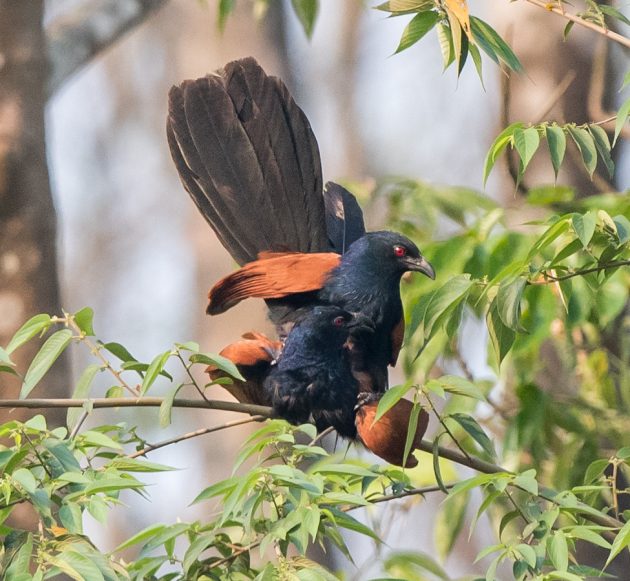
Apparently, Larger Coucal physique elements are used as conventional drugs by some rural Malays.
One other frequent manner for these birds to die is on roads – a research in a forest district in Maharashtra, India discovered that the Larger Coucal was essentially the most dominant species discovered useless in street car collisions.
When academics aren’t educating, what do they do? In Bangladesh, apparently, they conduct research like this one titled “The vertebrate fauna of the Academics’ Quarters-2 of Saidpur Cantonment Public College and Faculty, Nilphamari, Bangladesh”. And sure, they’ve Larger Coucals within the academics’ quarters.
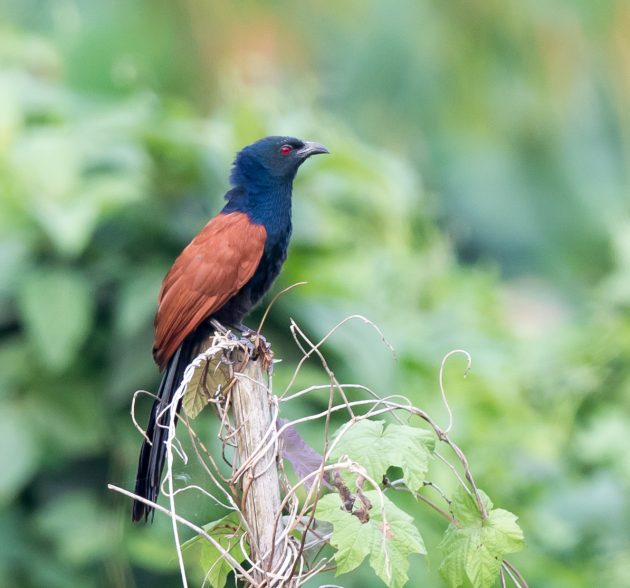
There are a minimum of three completely different kingfishers at Nabang: The Frequent Kingfisher (a male – see the black decrease mandible [ornithologist speak for beak part] – this may be orange in a feminine – you might also see the marginally stern facial features of the fowl, an expression of its need to specific its robust masculinity) …
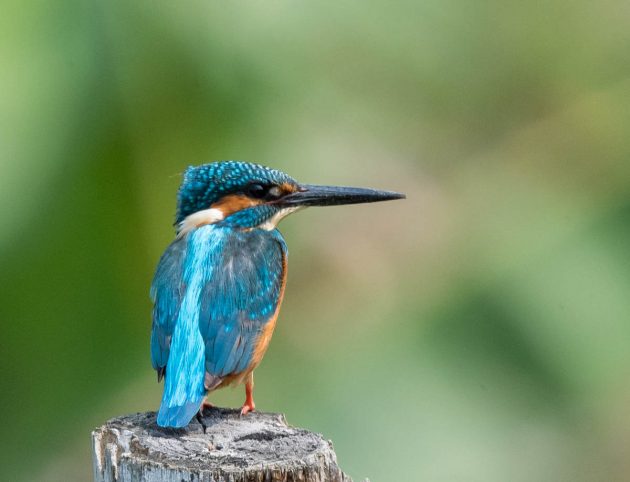
… Pied Kingfisher (a hovering male with the second, slimmer breastband that the females apparently consider as very attractive) …
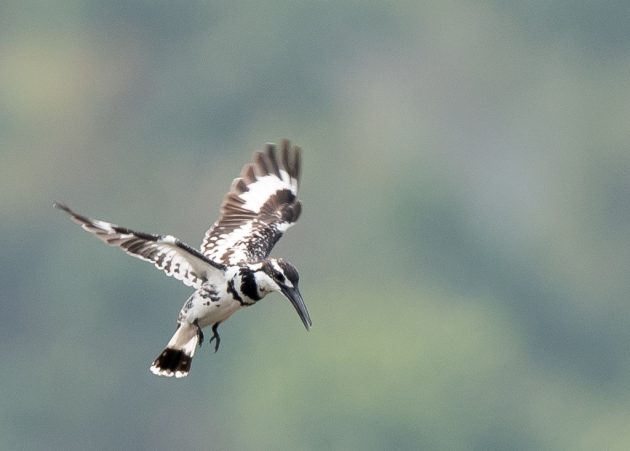
… and the White-throated Kingfisher (no concept which intercourse – I felt it was rude to ask. Although my experience concerning one other animal species – hom0sapiens – leads me to imagine that this show-offish pose signifies a male fowl).
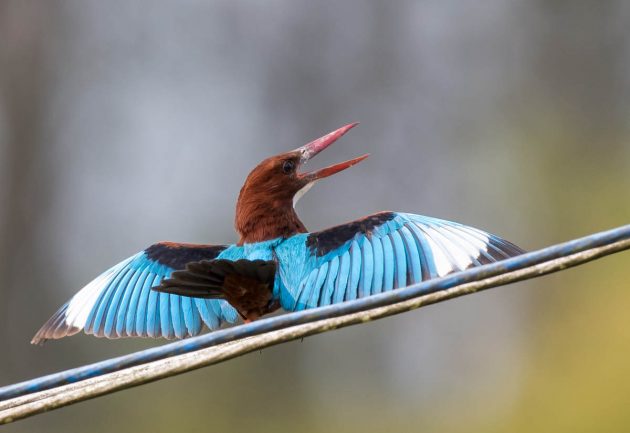
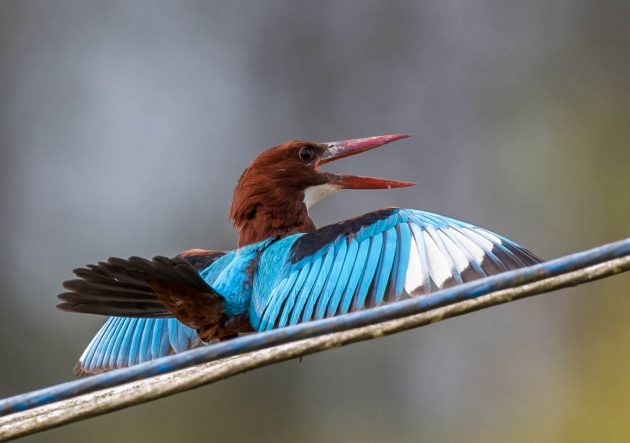
Black-throated Sunbirds principally reside off nectar but additionally catch bugs and spiders to get ample protein, notably when feeding chicks.
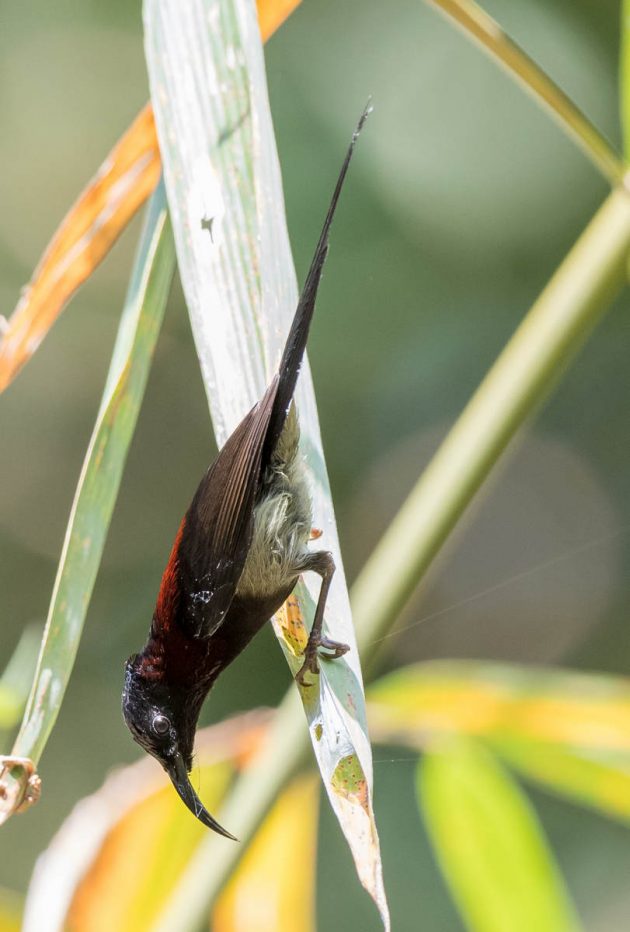
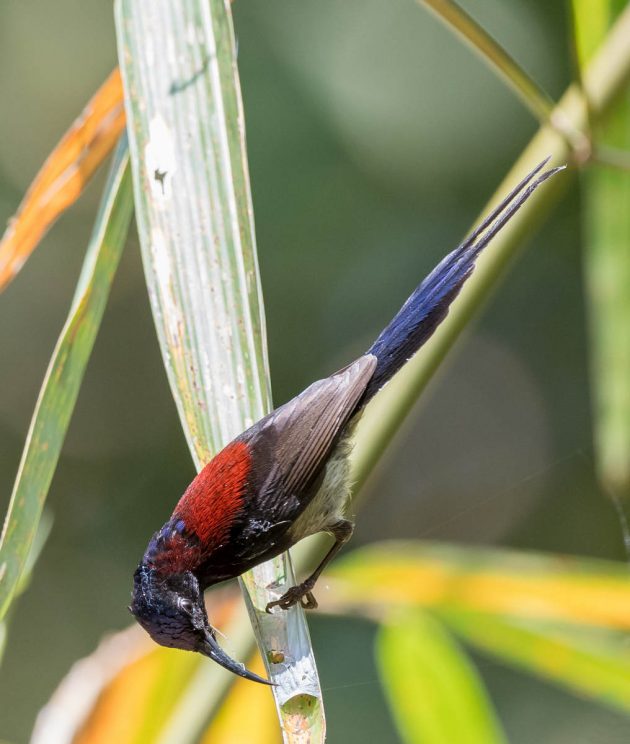
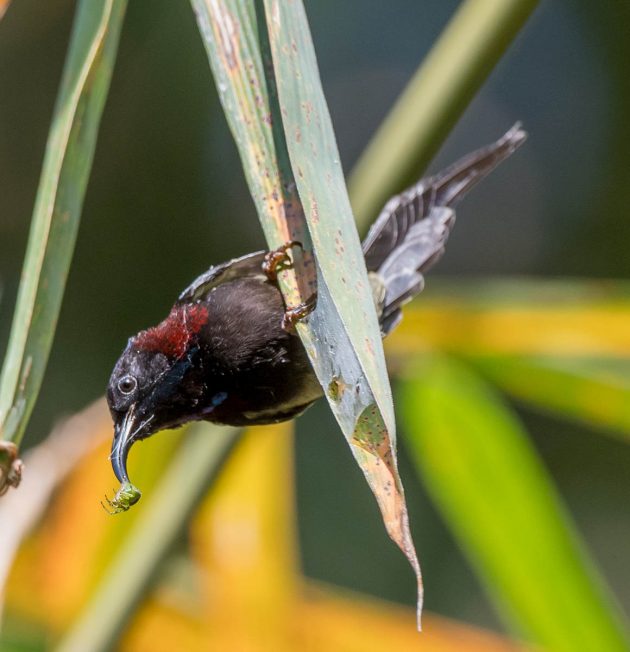
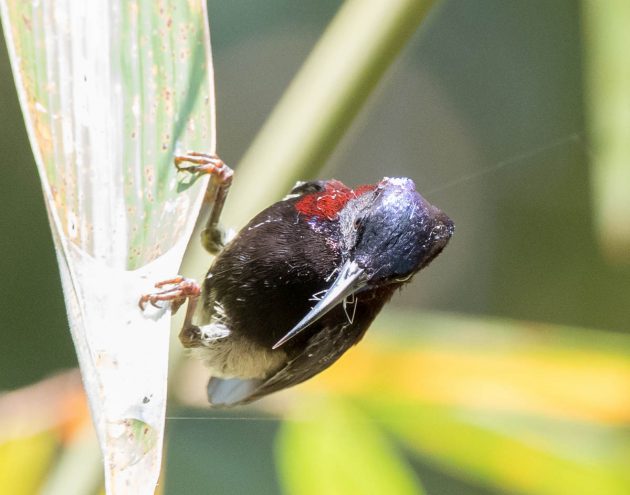
When you suppose that the photographs proven listed here are inferior to those taken by Craig Brelsford and proven on his Shanghaibirding web site, I totally agree with you.
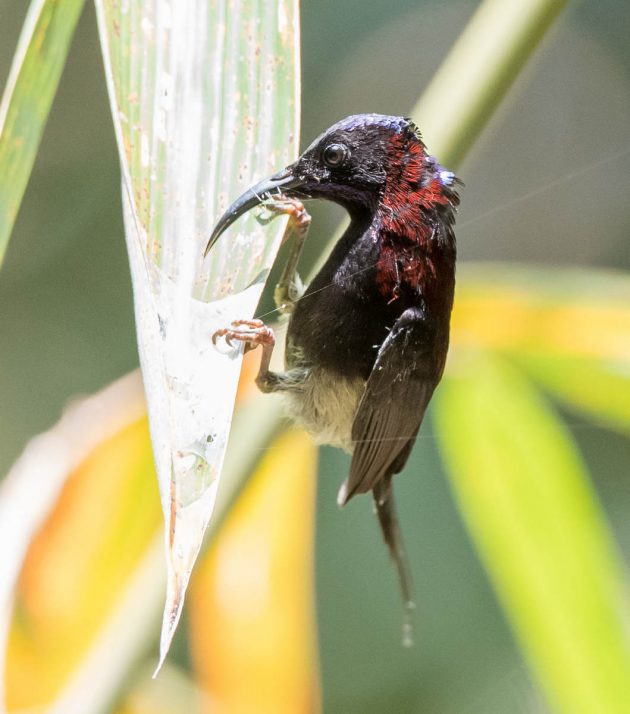
There are fairly a couple of flycatcher species round right here – some colourful, some quite uninteresting.
The Brown-breasted Flycatcher is certainly within the first class. eBird calls it a “uninteresting however quite cute flycatcher”. Distinction this with the HBW assertion with its “we’re critical ornithologists” angle: “Medium-sized, large-headed, olive-brown forest flycatcher”. I do know who I’d quite have a beer with (although the HBW folks in all probability choose wine anyway, disgrace on them).
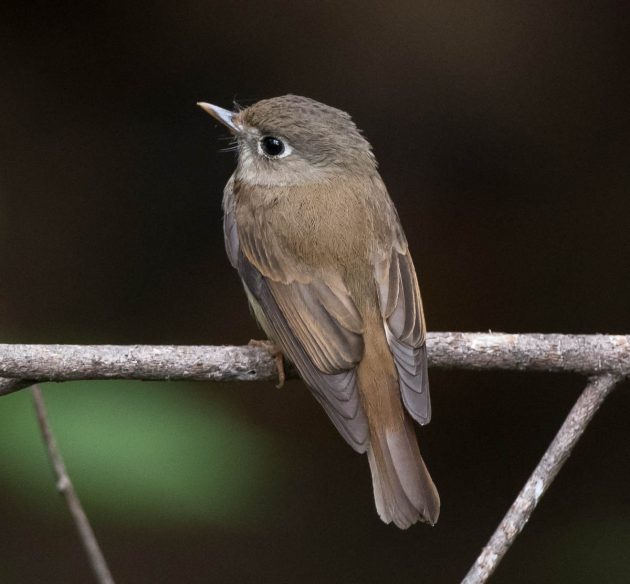
When you hear a “sound like a department of a forest tree creaking within the wind”, possibly you might have heard a Taiga Flycatcher – a minimum of should you belief the outline of its vocalization within the HBW. Possibly they do drink fairly a little bit of wine a minimum of sometimes.
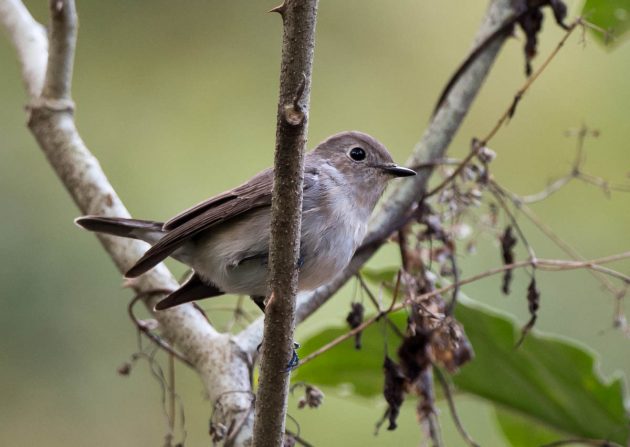
The Sapphire Flycatcher ought to clearly have employed a greater photographer – this photograph makes the species look much less engaging than the subsequent one.
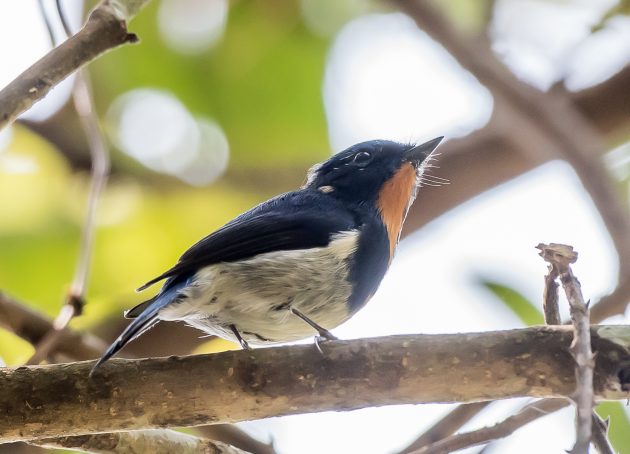
The Hill Blue Flycatcher might be essentially the most engaging among the many flycatchers right here, although the HBW calls it “quite unobtrusive”. I suppose they don’t imply the colours however quite that it doesn’t play loud music subsequent to your bed room at evening.
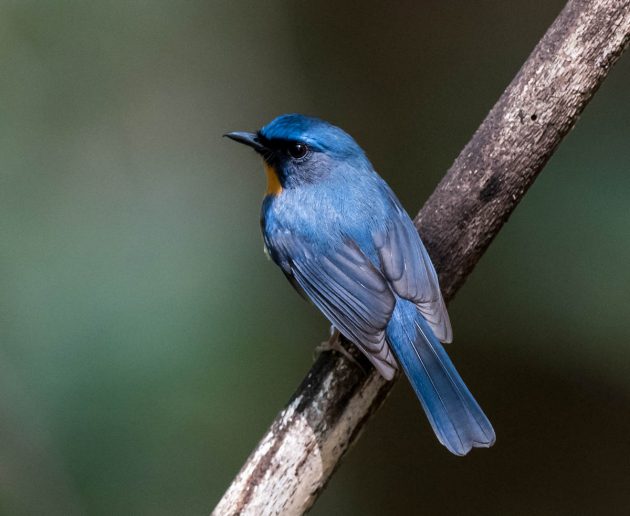
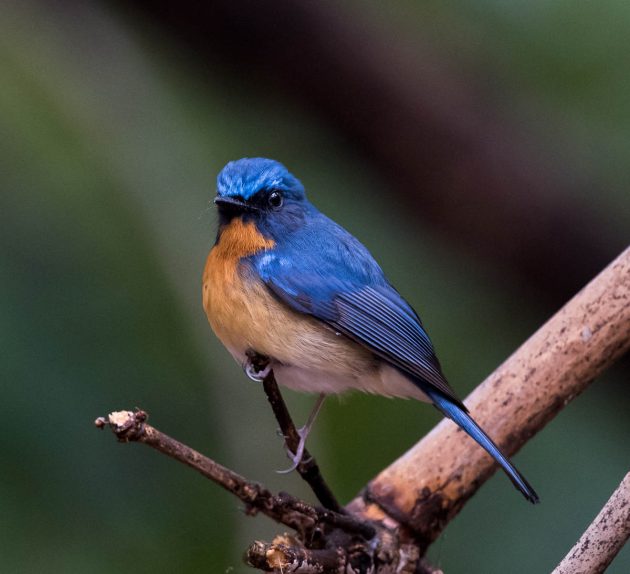
The Latin species title whitei is in recognition of the Australian Samuel Albert White (1870 – 1954) who Wikipedia describes as a “racehorse proprietor, soldier, explorer, conservationist and novice ornithologist”. Possibly it will have made extra sense to call a racehorse after him than a fowl species.
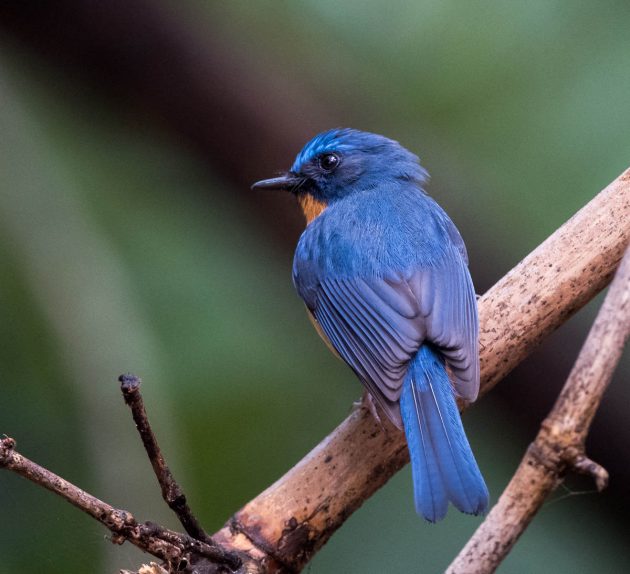
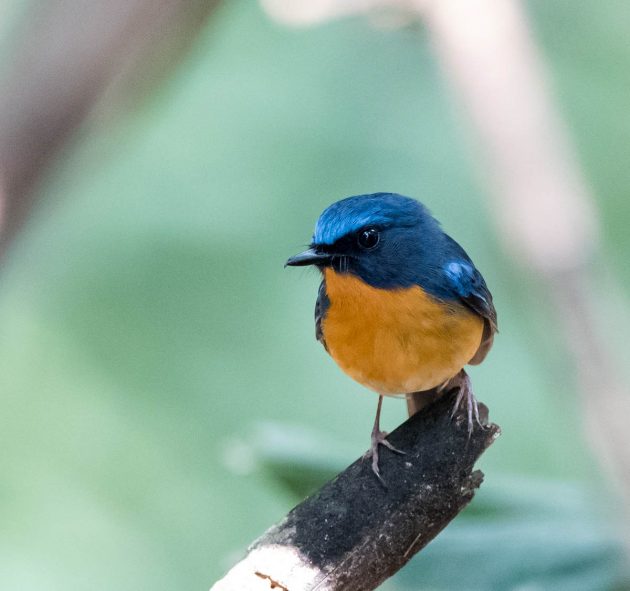
The richest Cattle Egrets in Nabang personal greater than 50 animals every and guard them fastidiously.
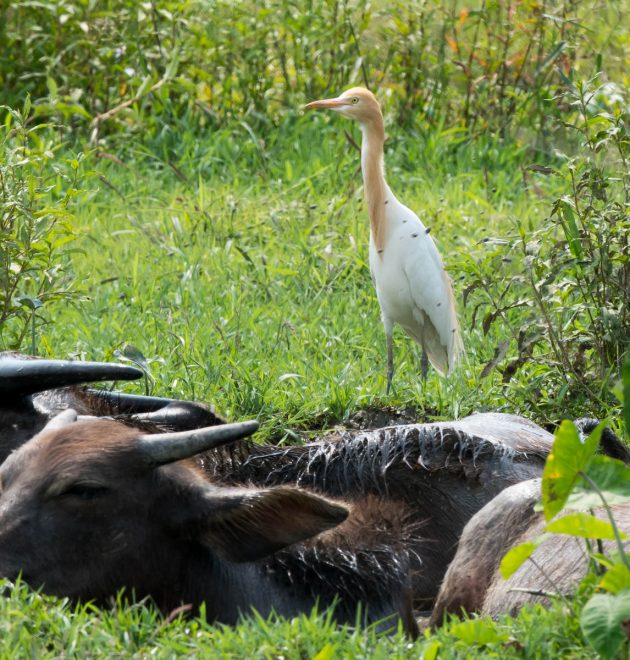
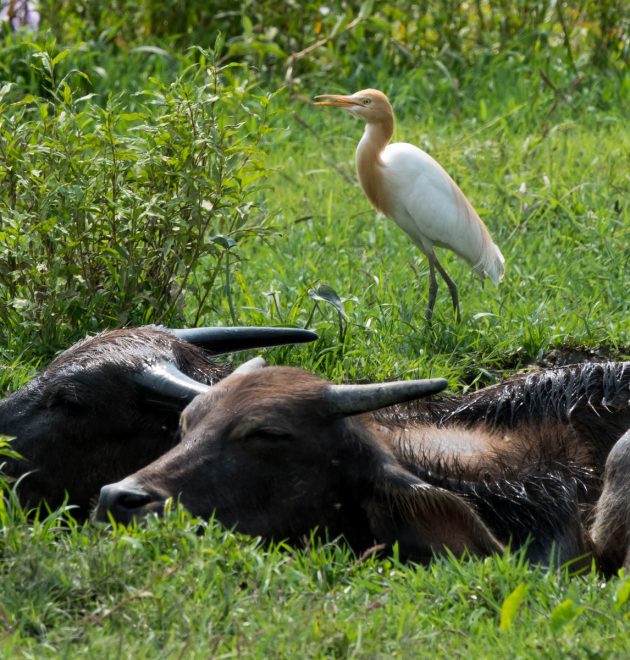
Beneath is both a Bianchi’s Warbler or a Marten’s Warbler. Within the golden days of the previous, these two and 4 different species have been all simply mixed as Golden-spectacled Warbler.
Even eBird shouldn’t be so positive that that is progress, describing Bianchi’s Warbler as “one in all a lot of mind-numbingly related Seicercus warblers”. The Russian Ornithologist Valentin Lvovich Bianchi (1857-1920) is accountable each for the English title of the fowl (his final title) and the Latin title valentini (his first title). It appears his center title Lvovich didn’t get used as a fowl title although [I did not make this bit up, honest!].
Surprisingly, eBird is way more optimistic about Marten’s Warbler regardless of admitting that it appears virtually the identical: “A vivid and engaging small warbler with many nearly equivalent family members”. Whereas the Latin species title omeiensis sensibly refers to a location in China (Emei Shan), the English title Marten appears to consult with a Jochen Martens, a professor on the College of Mainz. It appears the cut up of the Golden-spectacled Warbler has given a number of modern ornithologists similar to him and Mr. Alstroem an opportunity to get their names into the checklists of birders. A bit embarrassing, I feel, although I’ve to confess I’ve not had an opportunity to refuse to have a fowl species named after me but.
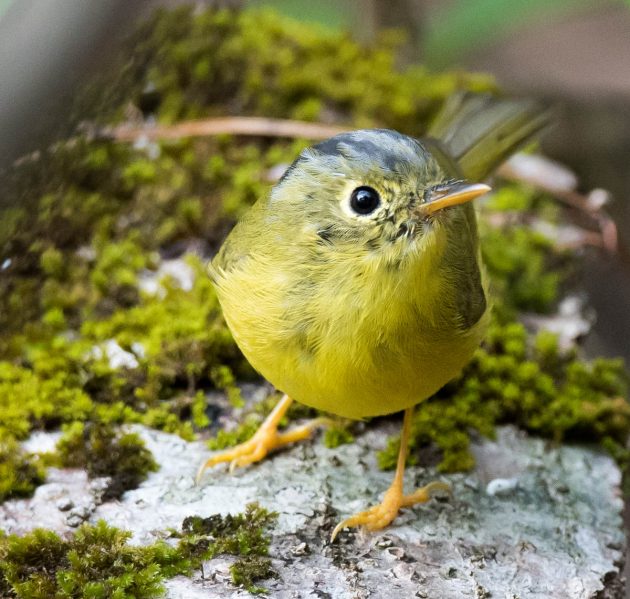
The swampy land round Nabang additionally appears to be good wintering floor for lapwings – particularly Gray-headed Lapwing …
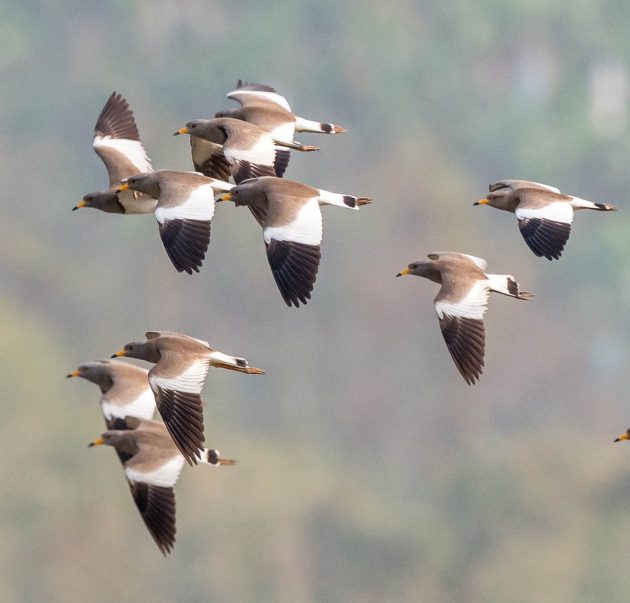
(for which a Japanese research finds that Japanese “farmers ignore the existence of Gray-headed Lapwing“)
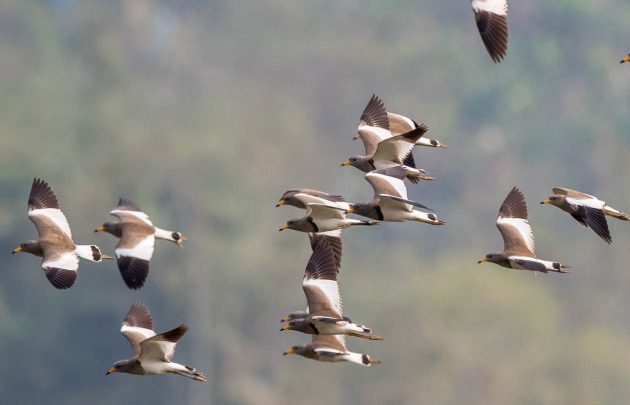
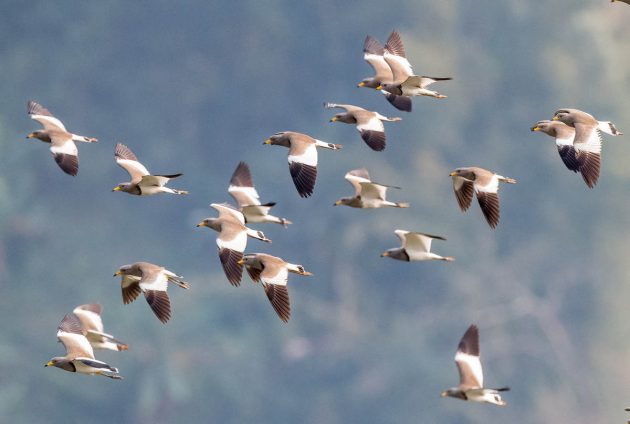
… and Crimson-wattled Lapwing.
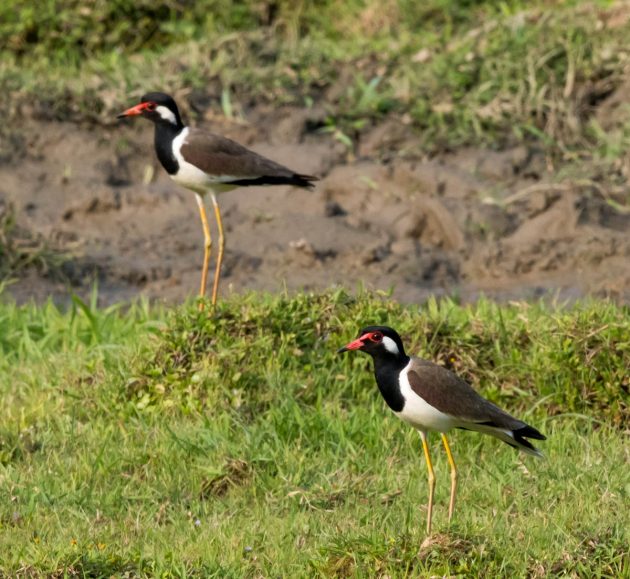
When you’ve got associates who’re Crimson-wattled Lapwings, inform them to learn the research “The hatching success of ground- and roof-nesting Crimson-wattled Lapwing Vanellus indicus in Haridwar, India”, or simply advise them to place their nest on a roof if attainable.
The Latin species title of the Orange-bellied Leafbird is hardwickii. Within the Wikipedia entry on English naturalist Thomas Hardwicke, there may be the marginally unusual sentence “Hardwicke was not married however had three illegitimate daughters and two sons aside from two daughters born to an Indian mistress”. I often have a tendency to not be overly politically right, however nonetheless this separate counting of daughters “from an Indian mistress” strikes me as a bit bizarre. Like there’s a rating: Kids inside marriage > illegitimate youngsters > youngsters from an area mistress.

At a spot known as Banyan Tree close to Nabang, one can see two parrotbill species. The Pale-billed Parrotbill has a invoice with a coloration much like the parrotbill proven additional beneath however a really distinctive black eyebrow. So naturally, they didn’t title it for that.
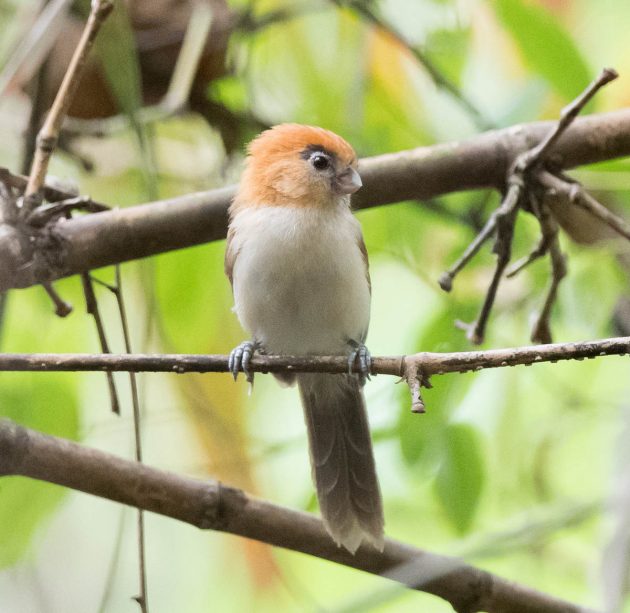
The species has associates in excessive locations – eBird calls it an “cute small parrotbill”
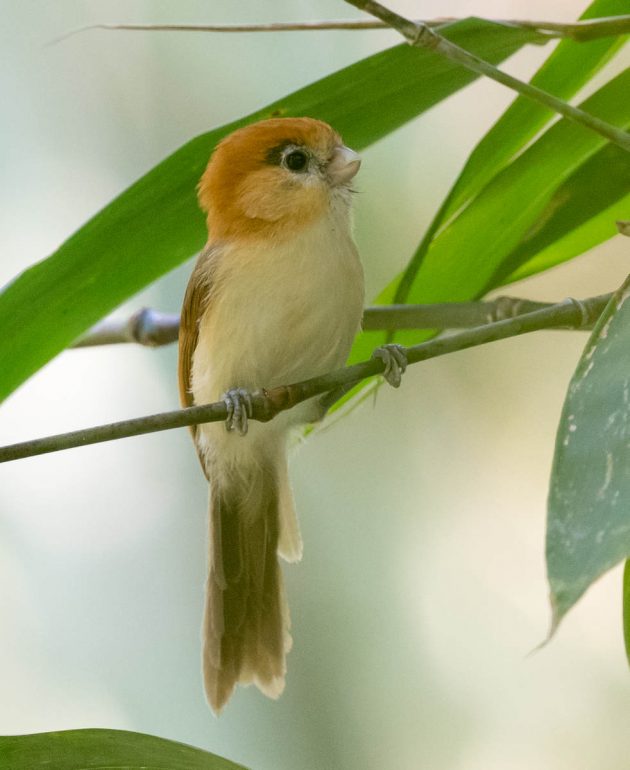
eBird additionally distinguishes it from the Rufous Headed Parrotbill: ” examine with bigger Rufous-headed Parrotbill, which doesn’t have a forehead mark”.
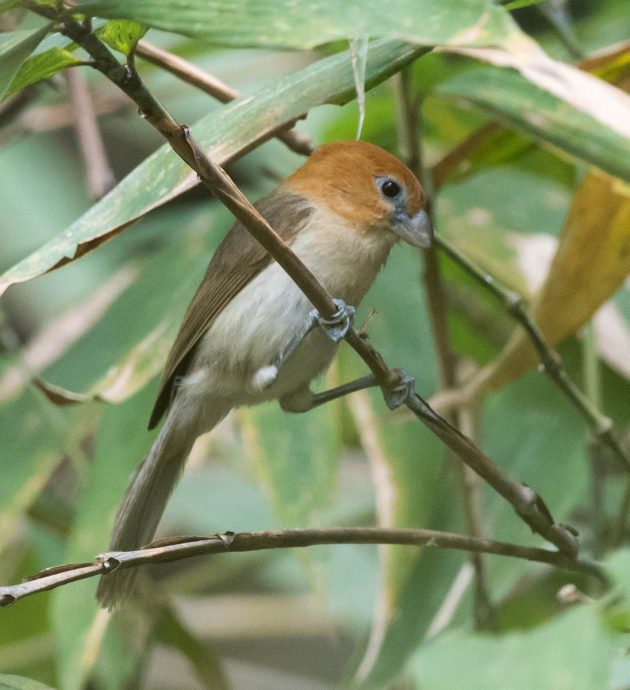
Extra on the Rufous-headed Parrotbill from eBird: “Very related in look to the smaller Pale-billed Parrotbill; search for the latter’s brief black eyebrow. Confusingly, each species are sometimes discovered alongside each other in blended flocks, sometimes with White-hooded Babblers.”
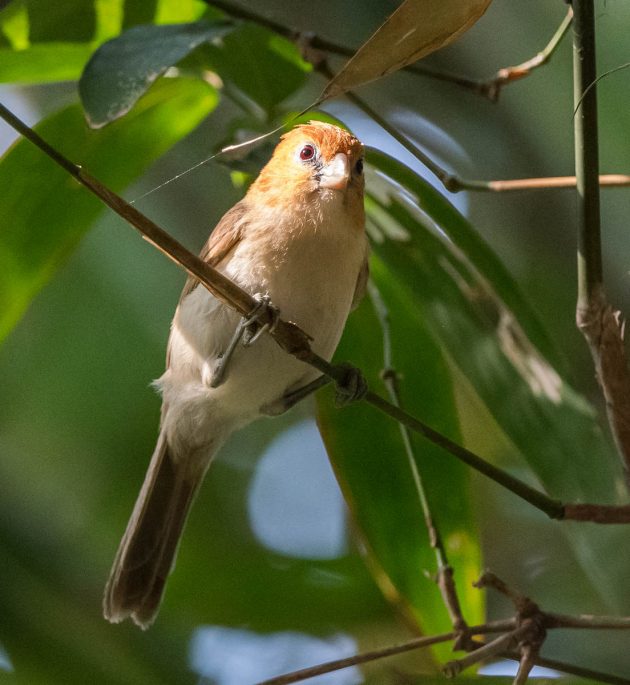
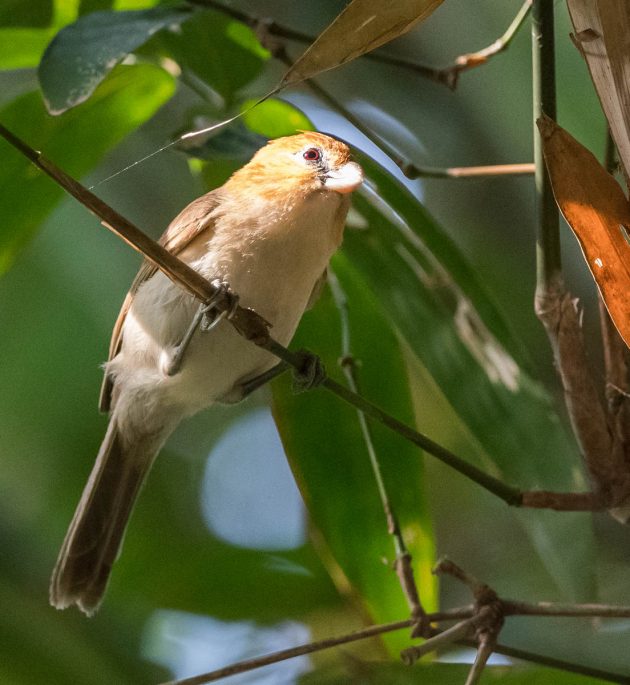
That is after all the right hyperlink to the White-hooded Babbler, which I certainly noticed in a flock with the 2 parrotbills. Not a really photographer-friendly fowl although.
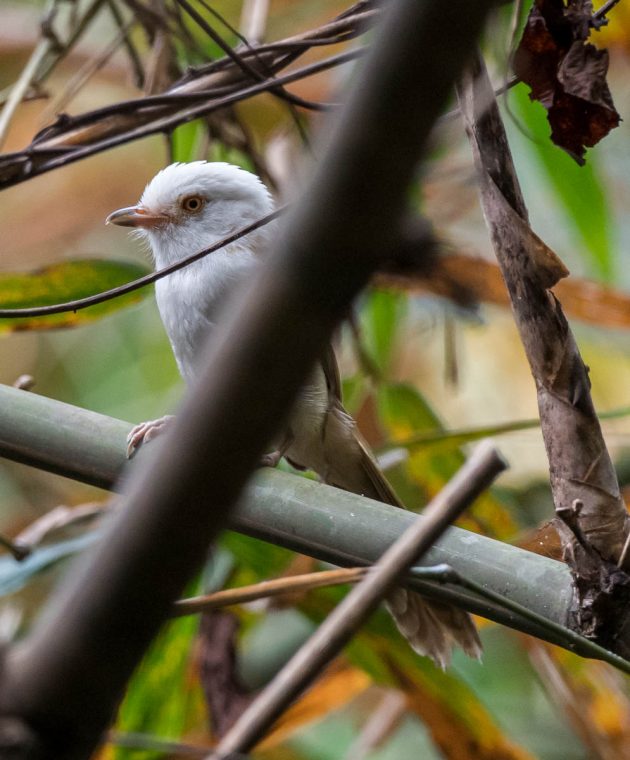
The fowl’s title is a bit unusual – HBW talks about its white head however a few of the birds I noticed had rufous quite than white heads. Rebellious juveniles?
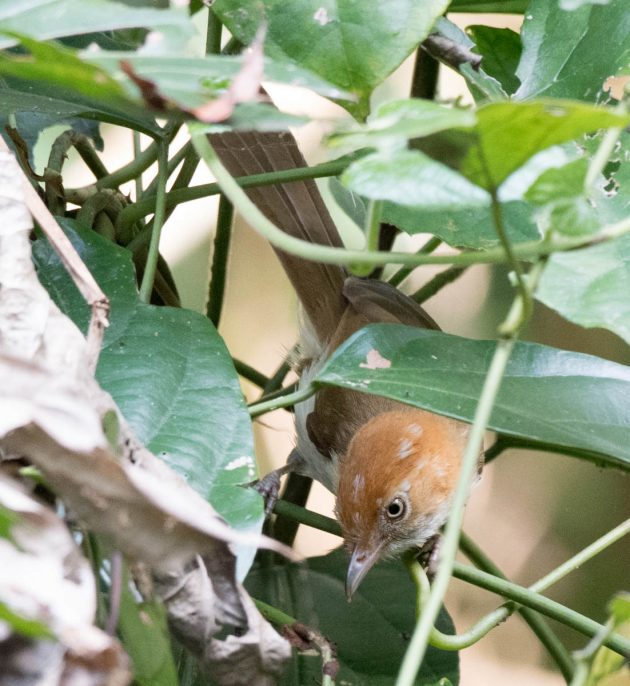
The Latin species title rufulus (“reddish”) sort of provides to the confusion.
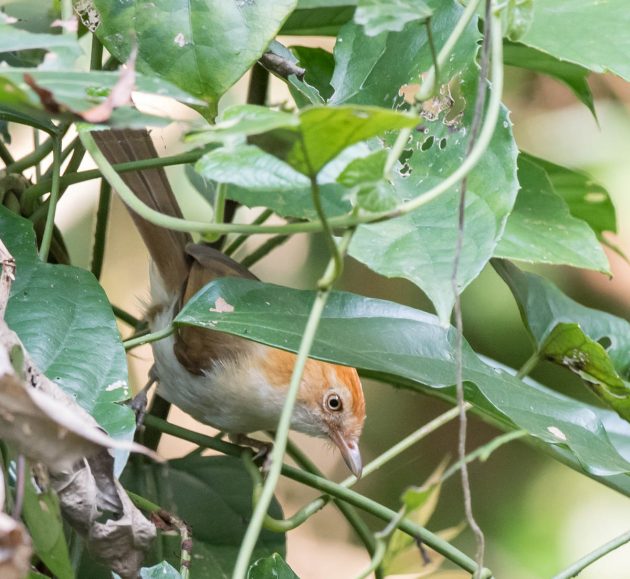
The HBW entry additionally talks intriguingly about “transient, edgy, subdued, conversational twangy ‘gyurt!’ notes”. Would love to listen to these. Good string of adjectives anyway.
I do not likely know whether or not these are Pale Martins or Sand Martins.
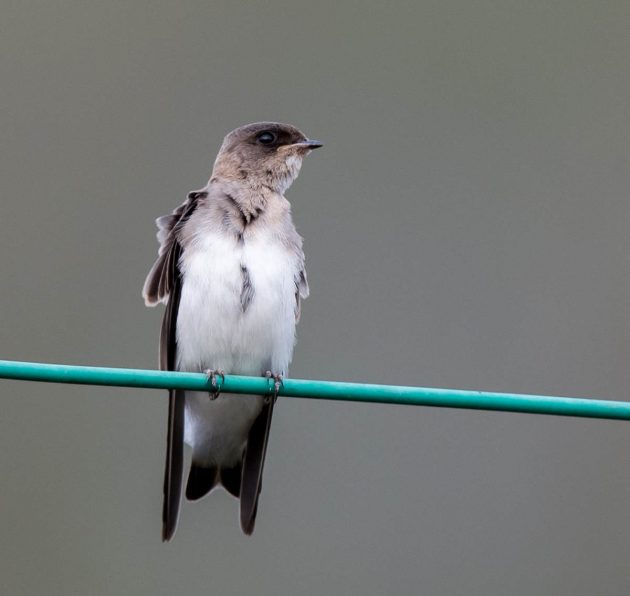
Whereas I can learn the HBW on this subject ([Pale Martin] “distinguished from related [Sand Martin] by paler and greyer upperparts, quite dingier underparts with much less well-defined breastband”), I lack the birding IQ to use this to my photographs.
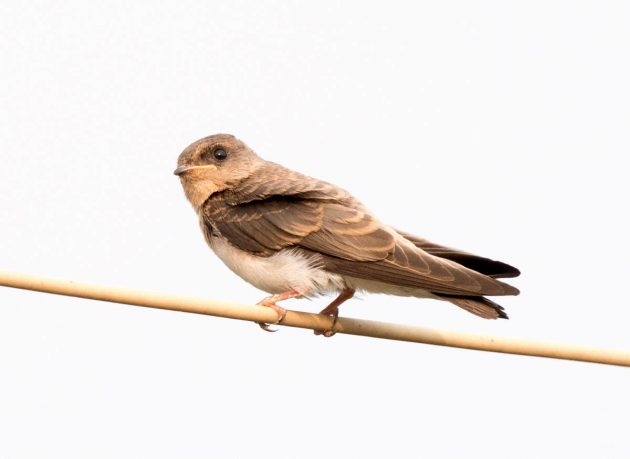
Thankfully, Barn Swallows look sufficiently completely different even for me.
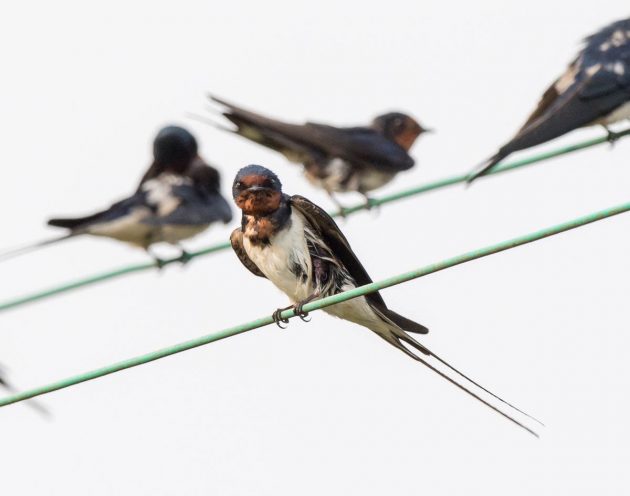
For a fowl particularly known as white, the White Wagtail has fairly a little bit of black in its plumage. Curiously, in Tim Birkhead’s ebook “Birds and us” he mentions that in medieval instances, folks prevented consuming wagtails as their shaking tails reminded them of (and thus may need thought them to trigger) Parkinson’s illness. That is sort of an inversion of the “Doctrine of Signatures” of vintage drugs, which states that vegetation much like particular physique elements are appropriate to deal with illnesses of those physique elements.
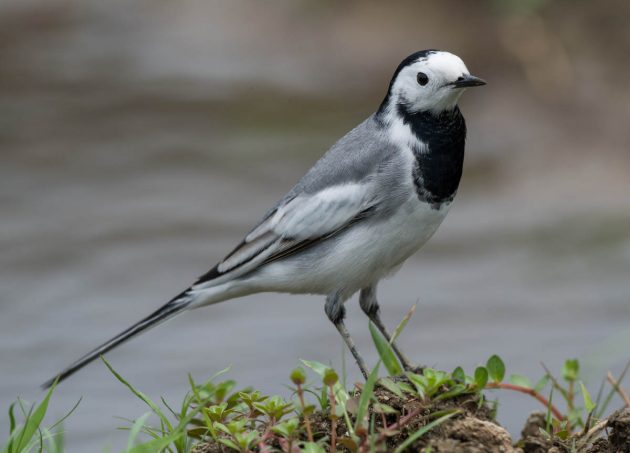
The HBW considerably unfairly calls the Yellow-bellied Warbler an “virtually featureless yellow-and-olive warbler” – I think the individual penning this sentence has not spent a lot time with a few of the completely featureless leaf warblers in China. eBird is marginally much less detrimental, calling the species “not particularly eye-catching”.
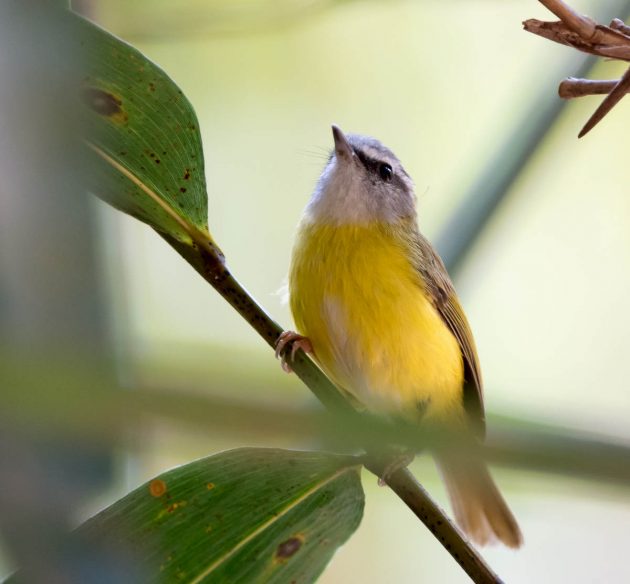
In distinction, for the Gray-headed Canary Flycatcher, eBird makes use of the catch-all time period “unmistakable”, although it doesn’t really look that completely different to me.
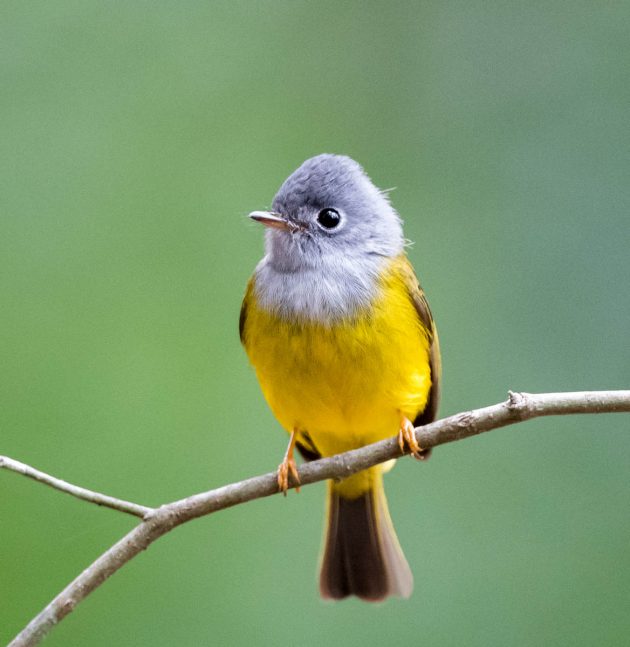
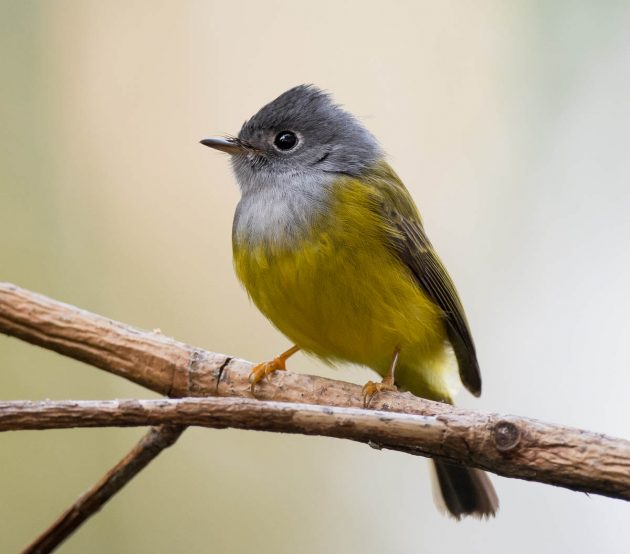
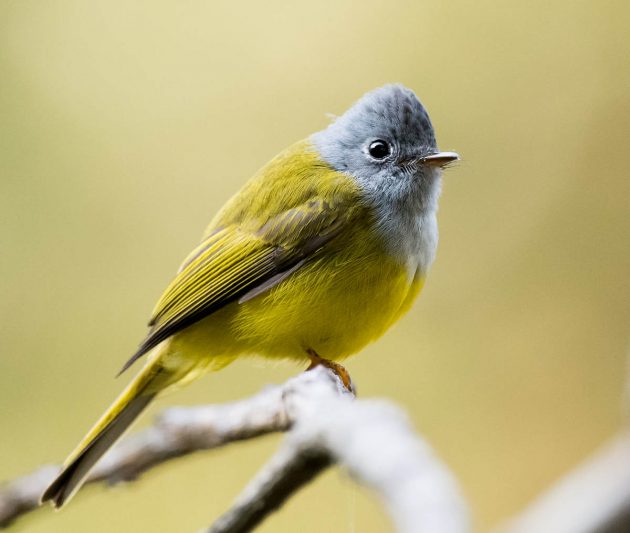
[ad_2]

